Mass communications and media manipulation (power of the media and power over the media)
"Media philosophers"? The wording itself sounds like accusation, a sign of lack of integrity, undeniable evidence of dubious prowess. It follows that mediation is evil on its own. Why? The question arises in isolation. And it deserves to be put. Beyond people, the entire "media society", starting from its supreme symbol - television - is suspected of preference for the excitement of understanding, communication to the information, the immediateness of the spectacle to the remoteness of contemplation. The banalities of criticism, which undoubtedly contain some of the truth, but it may be wrong to take a clean coin from any point of view. Media is just an instrument for us: the important thing is what we do with it. How could democracy be without it? How could philosophy be content with it? There is nothing left but use as much as we can.
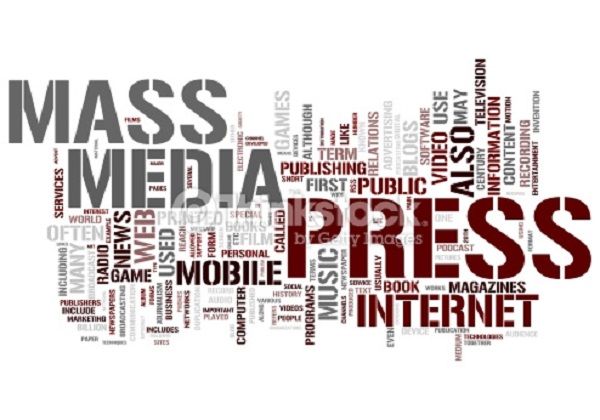
One of the main functions of the media as a fourth power is to monitor independently the other three authorities - legislative, executive and judiciary. As such, it guarantees their independence from one another and their functionality. The media have the opportunity to say or to conceal a particular problem, they are the ones that determine the parameters of cognition in the everyday life of the people. This makes them a source of a new kind of power - the media. It doesn't oblige or sanction. The term "fourth power" is imposed in France on the Dreyfuss affair. After the war between France and Germany (1870-1871), French senior officer Alfred Dreyfus was accused of being a German spy and betrayed to the Germans secret information from the General Staff, contributing to the loss of France. Dreyfus was convicted hurriedly, thrown out of the army and exiled to Guyana. Only thanks to journalistic investigations and the media campaign against the process, organized and paid by French intellectuals and public figures, reveals that Dreyfus is innocent. At the heart of the staged history and process was the truth that Dreyfus was a Jew. The media were the ones who uncovered the case. In connection with this, the French writer Emil Zola said that fortunately there is a fourth power that is able to detect and correct the mistakes made by the three secular authorities. To clarify the term, the term "mass communication" has emerged in Anglo-American studies and, according to its etymology, creates the mistaken impression that communication is directed at the masses, or recipients of mass-media messages are equated with "mass" or spontaneously arisen people who are in a panic mood. In fact, the "mass person" is distinguished by the unification of the personality, which is seen in equating the level of his thinking, his taste, the lifestyle, as well as in weakening autonomy, responsibility and initiative, and which ultimately responds to the "era of the masses." In this era, propaganda and publicity is propagated by mass media and public opinion determines the thinking and actions of the individual.
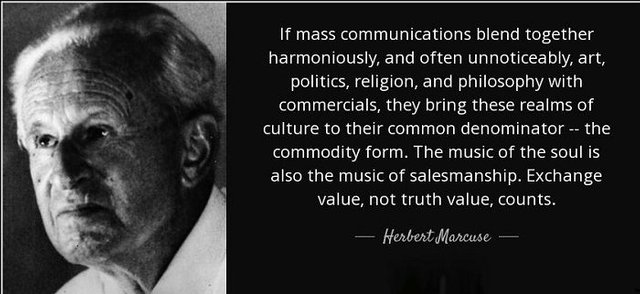
Conversely, a "mass" in the term "mass communication" refers to a multitude of people, which is unreasonable, heterogeneous and anonymous about the communicator in mass communication. "Unimaginable" - because it is a numerical scale that is impossible for the communicator to interact directly (face to face), "heterogeneously" - because these people have different social positions and "anonymous" - because the individual member of the respective recipients community unknown to the communicator. As this "table" turns to a common subject - mass media messages - it would be more appropriate to call it an audience or the term "dispersed audience" introduced by Malecze."Dispersed audiences are not long-lasting social entities, but they always arise as a result of the fact that many people are turning to a message of mass communication." There is no direct interpersonal relationships between the structures of such a dispersed audience, because the recipients are spatially separated, anonymous, and only know that, besides them, many other people perceive the same message. Dispersed audiences are heterogeneous, that is to say, people from different social strata, whose interests, positions, lifestyles and experiences differ. Dispersed audiences "do not show roles specialization and have no customs and traditions, rules of conduct and cults, no institutions". This makes it clear that the "mass" part of the term "mass communication" has to be understood in the sense of a dispersed copy.
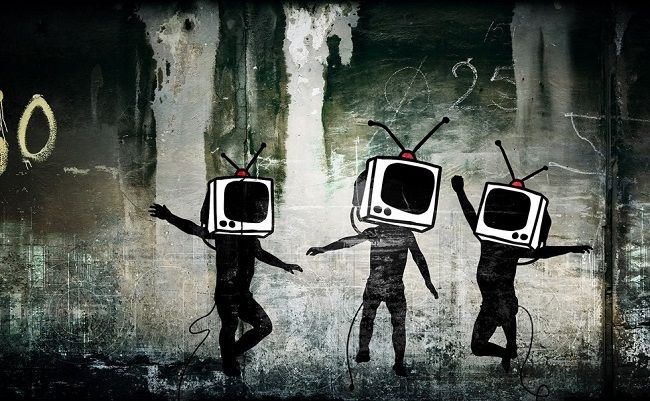
Mass communication differs from direct interpersonal communication in which partners are face-to-face - even if communication is directed to a broad segment of the population. There is usually room space (direct broadcasts on TV or radio) or spatial time division between the communicator and the recipient (reading a newspaper, a book, listening to or viewing already recorded radio and TV shows). That is why Malecke speaks of indirect (indirect) communication. There is no direct feedback between the communicator and the recipient. This kind of communication can be called unilateral communication. And since the circle of people targeted by the message is neither clearly defined nor quantitatively limited, mass communication can be called public. Charming and often humorous enthusiastic leading topical journalists is the biggest attraction that is found on television channels. With their fresh thoughts and finds they present each event in the light desired by the assignor. It can not be denied that "the television screen becomes a conductor of ideas, while others are pushed to the periphery, emphasis is on some events, and the others are being neglected, and the subject of constant interest remains the same." The media are always tempted and forced to play the unfortunate role of a "horn and loudspeaker" of power, of individual parties and economic groups. The political rule requires them to massively propagate the belief in the dominant idea, which is recommended as the only possible and unambiguous. Political tendency in the media is only part of the constant struggle for the electorate, for new dividends in a pre-election situation. Despite the claims and ambitions of "independent," true "witnessing media", each media respects the conditions of political and economic play - "illuminating" the rise of public morals, political intolerance, mafia, speculation. In other words, any media either goes with the winners and colors the rulers or just takes into account the position of the rulers. In the ring of politics, the media becomes a "manipulated manipulator". We are witnessing how, for years, the power struggle, like a massive wave, plunged the columns of newspapers and television programs, submerging almost all the naive expectations of independent and free media.
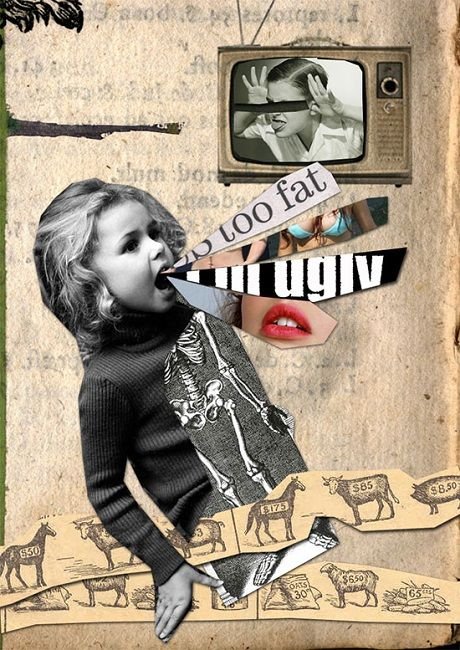
What the media a century ago or two were too far from reality today. Now they create mass culture, they create television, cinema, music, they have more and more sport. Consumers sometimes see intuitively, sometimes knowingly what is culture, advertising or just plain information. But it is not always important for the media. Today they are increasingly aiming to increase their profits and profitability. In this quest, they ignore the public task they ought to have as the fourth power. Information becomes a commodity whose market is constantly changing. But at the same time this commodity turnover creates and maintains the situation.
Only 80 years ago, the media was selling information to people. Today they sell positive and negative images to people and groups. The goal is to reach the maximum number of users by destroying the target groups. The more people are looking for a media, the more they are picked up and its quotas. Accordingly, the more expensive the advertising media area. To reach higher draws and quotas, new consumers are attracted by a variety of strategic stocks - with gratis releases, games, profits. Another way is through sensational content - even in tight political media this strategy is increasingly prevailing. Otherwise they would not survive.
In order to continue living and live well in every crisis situation, one has to become another, and with this even unconscious goal he turns to the possibilities of modern information and communication technologies. What better choice for a postmodern society based not on violence but on ownership? But why does he need advertising, why is he attracted to her, why does she like it? How does advertising packaging make information service so consensual? No phenomenon, of course, even at the time of its birth, is born outside of any particular cultural and historical situation. The attitude to information service is an act of a particularly cultural and communicative impact on man, which changes his cultural status. This cultural impact becomes a part of the person himself and turns back to his carrier and sponsor. Man is alone with information and advertising streams, and for him they are the immediate relativity in the everyday world: the rest of the socio-communicative chain are invisible and do not enter the horizon of his immediate experience. Unique is the act of crossing these two streams, it becomes a consuming unit - taking it, the person becomes a holder of it. The ad offers a set of motifs that move the individual along the "supply" and experience line. He strives to acquire the latest technical achievements.
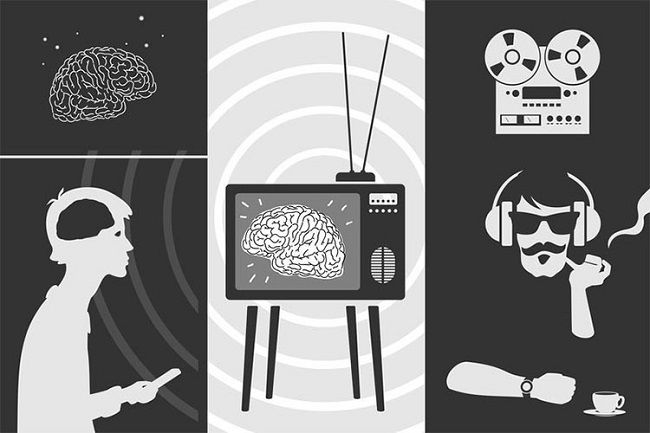
However, advertising is being built in such a way that in no case will there be over-prescriptions to its user, to reveal as much as possible to produce the desires precisely in the act of its attractive performance. Advertising is built to rely on the "first touch": in its quest, it takes on its own negligence, the dominant unambiguousness, the strict, not the free, and not individual, directions of movement on its tempting paths. Produced by consumption, the qualities of advertising are returned to it: the circle closes, and the question of the consequences remains open. In such a consumer - communicative situation even if some valuable products appear, then without advertising they are doomed to the uncertainty and no market realization. Media is undoubtedly the most successful advertising agent. From here it becomes clear why modernization is often replaced by imitation; why, in the last century, a man was trying to resemble the ethno of the educated European, and today he copied the pragmatic American model. The cultures of the small peoples borrow ready-made patterns of behavior, forms and emotions from other countries. Being ahead can only have a new line of the type of Internet. Being and celebrating means buying, enjoying yourself only if you go ahead and spend it. Advertising becomes a kind of life duplicator that replaces the way of life itself. It does not hide, it replaces reality. And the boundaries between advertising and propaganda are too easy to skip. The ad is turned to "His Majesty" the consumer, he favors his taste, cakes with his sensual aspirations. It takes into account, above all, the attitudes and tendencies of the average educated consumer. Media opinion defines taste, and it is a kind of exercise of power. Good advertising is like a good vision. It's just the focus of a projector on a figure. Advertising is not just a conjuncture that at some point overtakes you on the wave crest and gives you more than one opportunity. It is the power of man over man. The advertising success is acquired exclusively by presenting or imitating the useful, all that has no advertising-applied model is "meaningless"; is missing its reality. The advertisement is a late product only as a formula; its content, however, is ancient and refers to the use of sophisticated techniques, to the actions that offer an absolute illusion of truth.
Media only shows what they think people needs to know,and on the internet people only search for the news they wants to hear, philosophically we are in a tampered reality in either way ...
Yes, this is the sad truth - people always hear what they want to hear.
It is better to be violent, if there is violence in our hearts, than to put on the cloak of nonviolence to cover impotence.
- Mahatma Gandhi
Good quote
i just upvote you & you back upvote my post ....please@alaminbappy
Sure :)
Congratulations @godflesh, this post is the forth most rewarded post (based on pending payouts) in the last 12 hours written by a User account holder (accounts that hold between 0.1 and 1.0 Mega Vests). The total number of posts by User account holders during this period was 3080 and the total pending payments to posts in this category was $2721.86. To see the full list of highest paid posts across all accounts categories, click here.
If you do not wish to receive these messages in future, please reply stop to this comment.
Okey, I will see it :)
This post has received gratitude of 12.86 % from @appreciator thanks to: @godflesh.
You also do not understand people who hear only what everyone heard to be popular?
I think they are kids. With mental of kids.
The content of the media is a reflection of our society. Yes, its true that it's called "The fourth power", but that therm is an illusion. We are the core of that power, because we crave for that content and support it. It's a cursed circle..
Yes you are right. But sometimes the media re-educate slowly and imperceptibly the taste of the people going to be more garbage, without they noticing that, and then they will want it like that is they true nature.